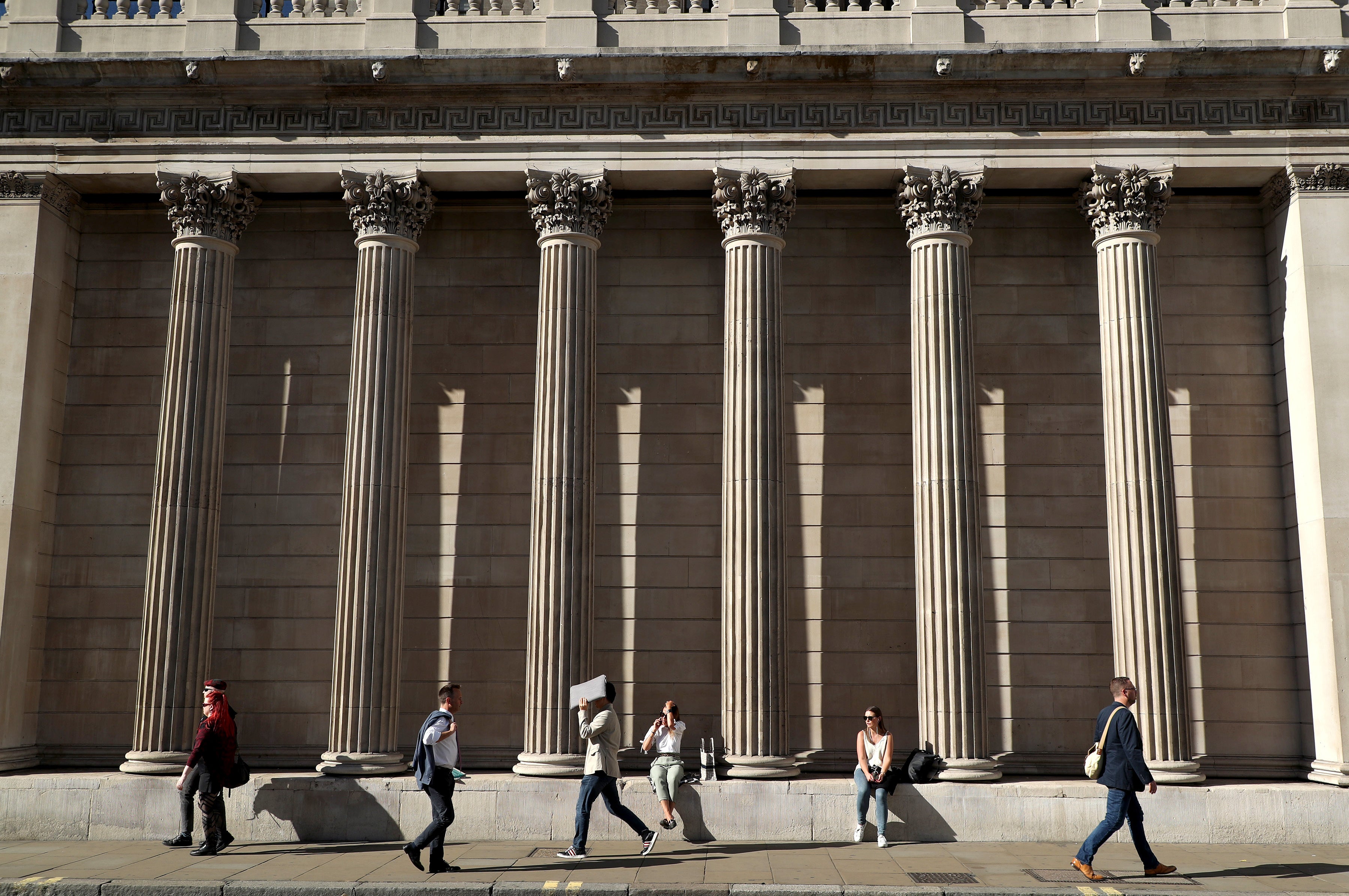Mortgage borrowers face squeeze on living costs as Bank of England poised to raise rates
Bank of England expected to raise base rate to highest level in 13 years as walks ‘very fine line’ between cooling inflation and avoiding recession

Your support helps us to tell the story
From reproductive rights to climate change to Big Tech, The Independent is on the ground when the story is developing. Whether it's investigating the financials of Elon Musk's pro-Trump PAC or producing our latest documentary, 'The A Word', which shines a light on the American women fighting for reproductive rights, we know how important it is to parse out the facts from the messaging.
At such a critical moment in US history, we need reporters on the ground. Your donation allows us to keep sending journalists to speak to both sides of the story.
The Independent is trusted by Americans across the entire political spectrum. And unlike many other quality news outlets, we choose not to lock Americans out of our reporting and analysis with paywalls. We believe quality journalism should be available to everyone, paid for by those who can afford it.
Your support makes all the difference.The Bank of England is poised to raise interest rates to their highest level in 13 years as it seeks to rein in rising living costs.
Its Monetary Policy Committee (MPC) meets on Thursday to deliver its latest decision on rates amid spiralling inflation fuelled by a surge in energy costs. Consumer price inflation is forecast to hit 9 per cent later this year, with some analysts predicting it could go into double digits.
Economists expect the MPC to hike rates from 0.75 per cent to 1 per cent on Thursday – a level not seen since the aftermath of the financial crisis in 2009.
Until recently, the consensus had been that an increase to 1.25 per cent was likely, but a set of increasingly alarming economic indicators has tipped the balance towards a more cautious approach.
As governor Andrew Bailey has warned, the Bank must walk a “very tight line” between cooling inflation and triggering a recession.
Consumer confidence plunged last month, while retail sales came in lower than expected as shoppers held back on spending amid growing fears about soaring energy bills, food prices and fuel costs.
Rishi Sunak has so far rejected calls to offer targeted financial support to struggling families – a move that would go some way to boosting consumer confidence.
The chancellor has so far chosen to stick with previously announced plans for rebates on council tax and a loan to cover some of the increase in energy prices.
Last week he said it would be “silly” to offer more help with energy bills now, during the summer months, when people’s gas and electricity usage is typically lower.
In the absence of a fiscal cash injection into the economy it has been left up to the blunt instrument of monetary policy to head off what threatens to be the worst squeeze on living standards in living memory.
Raising interest rates rates on Thursday would mean higher monthly payments on debt for businesses and homeowners, with those on variable and tracker mortgages the first to be impacted.
In total, around 2 million households could see monthly payments rise after Thursday's decision.
Around 850,000 borrowers have tracker mortgages which follow the Bank's base rate, while a further 1.1 million are on standard variable rates (SVRs) which follow a rate set by the lender, but which also typically track's the base rate.
First-time buyers taking out a mortgage would also be required to pay more.
Taking money out of the pockets of households would weigh further on a UK economy that is struggling to bounce back from the pandemic.
Growth began to pull back sharply in February as the cost of living squeeze took hold, with official data showing expansion of just 0.1 per cent, down from 0.8 per cent in January.
The Bank said last month it believed growth would reach 0.7 per cent in the first quarter, up from a previous expectation for gross domestic product (GDP) to remain flat, with the jobs market also holding up well.
But many experts see GDP flatlining in the second quarter as consumer confidence falters further.
Join our commenting forum
Join thought-provoking conversations, follow other Independent readers and see their replies
Comments